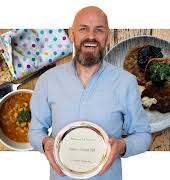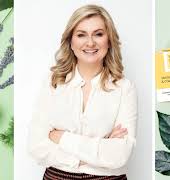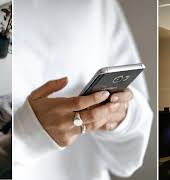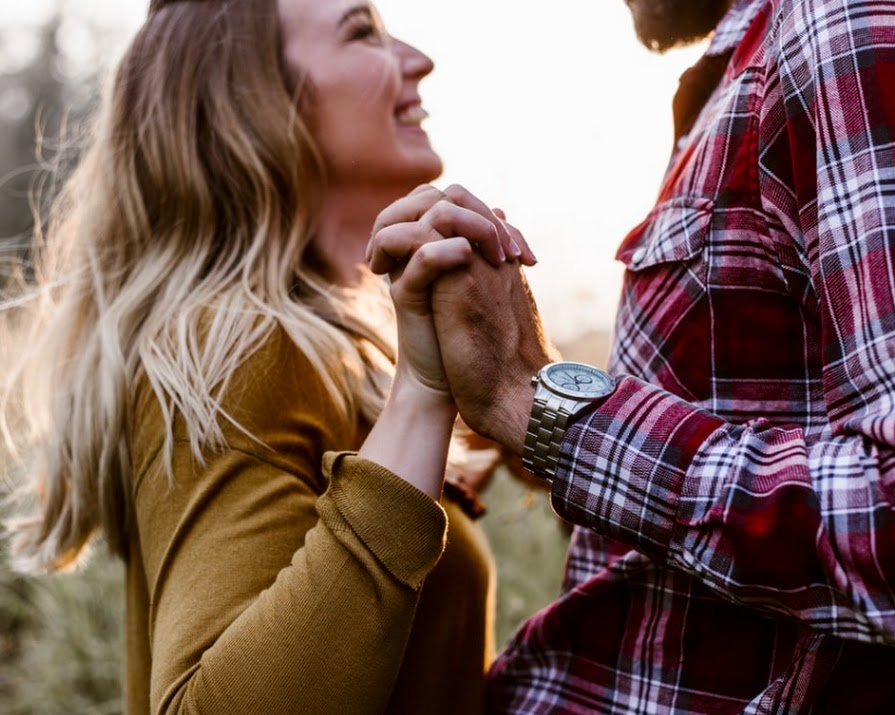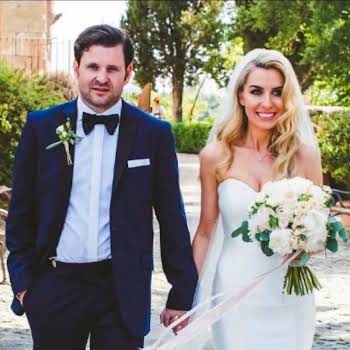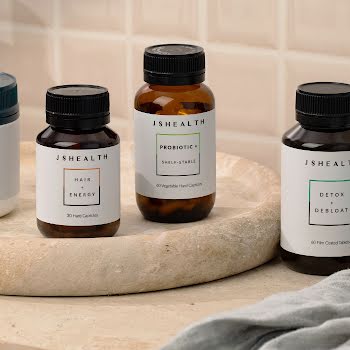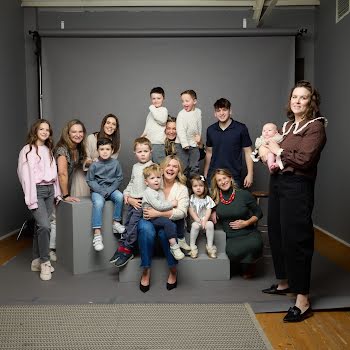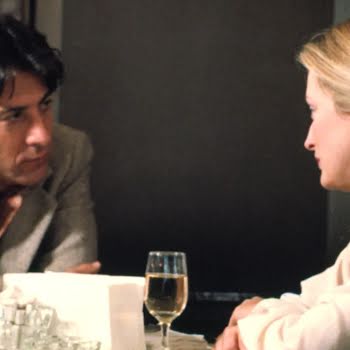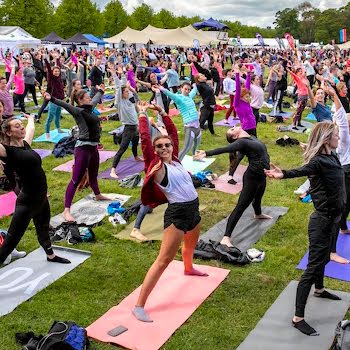
The secret to a happy marriage (according to relationship experts)
We talk to David Kavanagh, a psychotherapist who has worked with over 12,000 couples, about love, marriage and the essential ingredients for maintaining a successful relationship.
“We’d been married seven years and been together for ten so a whole decade of our lives had been intertwined. But I began to realise we were now on completely different pages.” Emily is a friend of mine who doesn’t mind opening up about her marital problems. She has always been very forthright about her relationships, needs and desires.
Her pragmatic approach to working on her marriage is what she believes saved it. “The minute I started building up resentment, I knew we had to nip it in the bud immediately. I found myself daydreaming about a Plan B if it didn’t work out. It wasn’t fair on our family and it wasn’t fair on my husband who, despite driving me crazy, was pretty oblivious.”
Related: Why arranged marriages are on the rise
They decided to book an appointment with a relationship counsellor. “Initially my husband was aghast and was reluctant to admit there was anything wrong at all and certainly nothing a third party should be privy to. But often it is just a good opportunity to find out where the communication problems lie.
We are very heavily emotionally invested in our marriage — especially when there are children involved, so having a third (calm) person who also happens to be an expert in this sort of thing, asking the right questions and making us reflect on what we were saying, was really beneficial.”
That was three years ago. Emily says she considers herself very happily married now and says that working on their communication brought them even closer.

Communication
Michelle and Barack Obama would agree. In an interview with Robin Roberts, Michelle Obama admitted that “marriage counselling, for us, was one of those ways where we learned how to talk out our differences. What I learned about myself was that my happiness was up to me. And I started working out more. I started asking for help, not just from him, but from other people. I stopped feeling guilty.”
That is the ideal scenario — you recognise a problem, you take positive action, problem solved. But when it comes to sharing your life and your love with someone for decades, perhaps it isn’t as straightforward as we’d like to think.
David Kavanagh is a systemic psychotherapist and author who has worked with over 12,000 couples. A pioneer in using neuroscience research to improve the lives of his clients, he also helped married couples on the BBC TV show You’re Not the Man I Married regain their spark.
I asked him what the most important things are when it comes to keeping a marriage healthy. “Two things,” he replies without hesitation. “Respect and excitement. If you have plenty of both, most couples can get through just about anything.
“If you are doing nothing but watching Netflix every weekend or going to the same old places week in week out you are missing out on doing so many exciting things as a couple”.
“Losing respect for someone means you are also taking them for granted. Resentment builds and this destroys romance and intimacy. Excitement means we can take a break from the mundane routine of domestic life. Without novelty, we become bored and then disinterested in the other person which can mean a physical disinterest which again can cause problems in the root of a marriage.”
So how do you work on this? “Well, when it comes to the excitement part, start planning exciting things,” suggests Kavanagh. “Organise adventurous activities, create mystery and seek out novel hobbies. If you are watching Netflix every weekend or going to the same old places week in week out you are missing out on doing so many exciting things as a couple. Start putting some spark back into date nights by planning new things”.
Respect
“You may not like their hobby or their friends but you can still respect them.”
“When it comes to respect, this is a core fundamental value. Either you have it or you don’t. You can, however, make a conscious decision to respect your partner’s value system. You may not like their hobby or their friends but you can still respect them. That is a choice you can make which can make a big difference to a marriage.”
What about compromise? “You can compromise on a lot of things but you should never compromise on your values,” points out Kavanagh. “Successful marriages usually thrive when partners are flexible, fluid, easy going. If someone is too rigid or stuck in their ways it is hard to be in a growing relationship with them.”
Are we as a society still as committed to signing up for a lifetime with the same person? Kavanagh recounts an anecdote he uses when he is preparing couples for marriage.
“I ask them if they think marriage is for life. Invariably, every couple says yes. Then I clarify. If, after one year, your husband tells you that he no longer loves you or wants to touch you and doesn’t speak to you, how long will you put up with that? Most say they would probably leave at that stage. So they don’t think marriage is for life, they think only a happy marriage is for life.”
For life
So is he saying that we shouldn’t be naive when it comes to signing up for marriage? Kavanagh expands: “I’m saying that we now live in a society where we value our personal happiness ahead of say, what was seen as traditional ‘family happiness’. We are less likely than our parents or grandparents to sacrifice our own happiness for the ‘sake of the children’.”
But isn’t that a good thing? Kavanagh says it is a different thing. “Of course, if you are unhappy and your partner is unhappy then most likely your children are going to be unhappy, so ultimately what could be seen as a ‘selfish’ personal choice might actually be better for everyone. But it is not without complications.” We agree that this is another article for another day.
But for many, the same old problems seem to crop up — not feeling prioritised, a lack of affection, work taking up too much time, a lack of communication, bickering over finances, wet towels on the bed. (Okay, I added that one myself, but still…)
“The marriage is number one, the children are number two, and work is number three.”
Harville Hendrix is the co-author of Making Marriage Simple. He wrote the book with his wife, Helen LaKelly Hunt. They have been married for over 30 years and believe it is because they make their marriage their priority. “The marriage is number one, the children are number two, and work is number three. If you make marriage number one, your children will do better and you won’t have to spend that much time managing them — and you’ll be more productive at work. But if you reverse those priorities, nothing works. Make it first. Make it top.”
Another thing most experts agree on is that putting your phone away is a must. In fact, one study published in Computers in Human Behavior investigated data from 1,160 married people and found a negative correlation between heavy social-media use and relationship happiness.
Kavanagh points out that this is part of his two ingredients — the respect part. “When arguments escalate to anger, rather than talking things over to work out a disagreement, couples are text-fighting. Face-to-face conversations with your partner are a far superior way to getting to the bottom of things and a lot more respectful.”
So if everyone seems to have the same problems — why do some relationships last and others don’t?
Being with someone who has a growth mindset is important according to many of the relationship experts. Having a growth mindset helps when you hit the bumps that come with every marriage. In this way, you can both see the challenges not so much as a setback but as an opportunity to learn about each other and to deepen the relationship.
If no one is perfect, then no marriage is perfect. Finding that person with whom you want to share your one amazing life isn’t easy. Sticking together is about respecting the love you have cultivated together and the life you are building.
I suppose this means I’m going to have to let go of the wet towel gripe.
Image via Unsplash.com
Read more: In a world of instant gratification, do we expect the same from our relationships?
Read more: Want a happy relationship? Then talk to your other half about money
Read more: How being able to laugh at yourself informs the quality of your relationships



